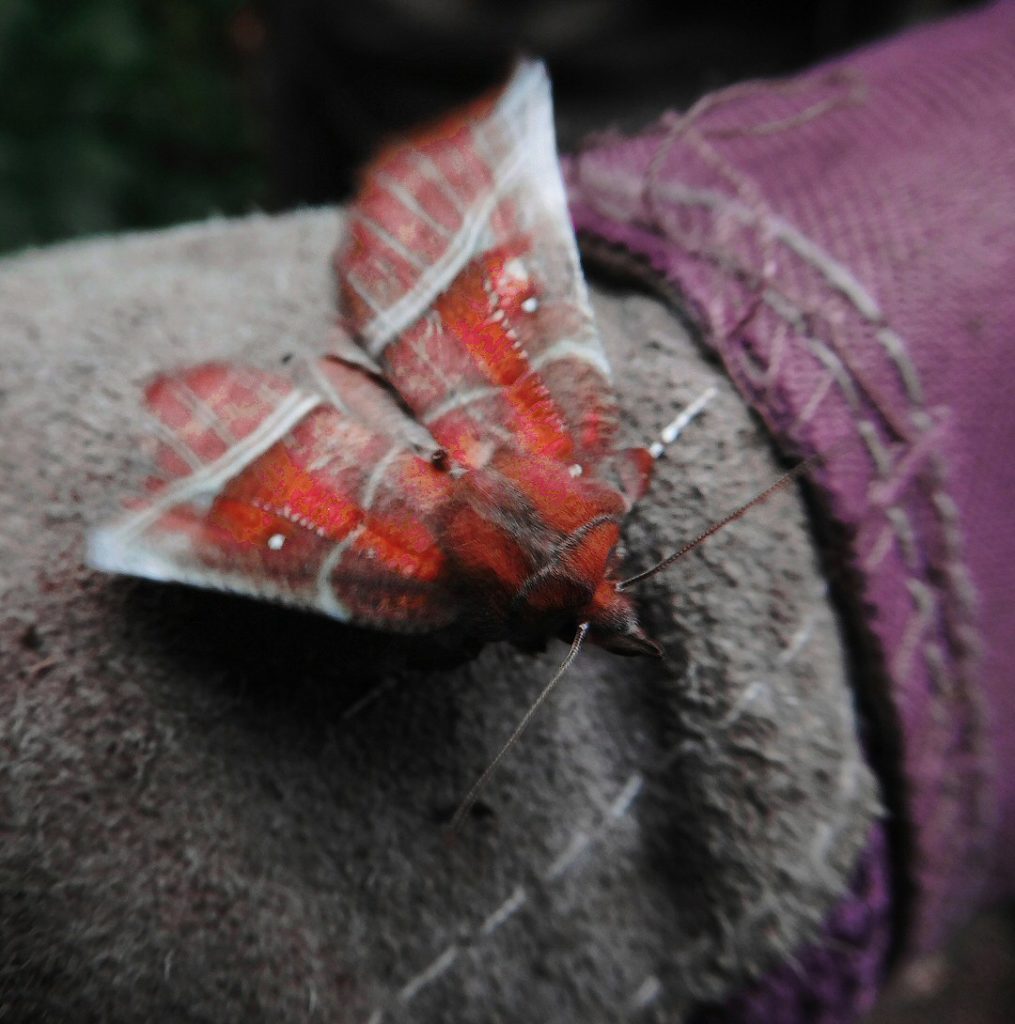
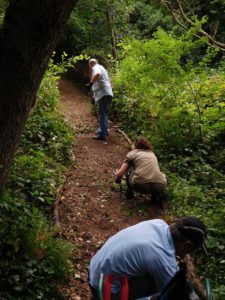


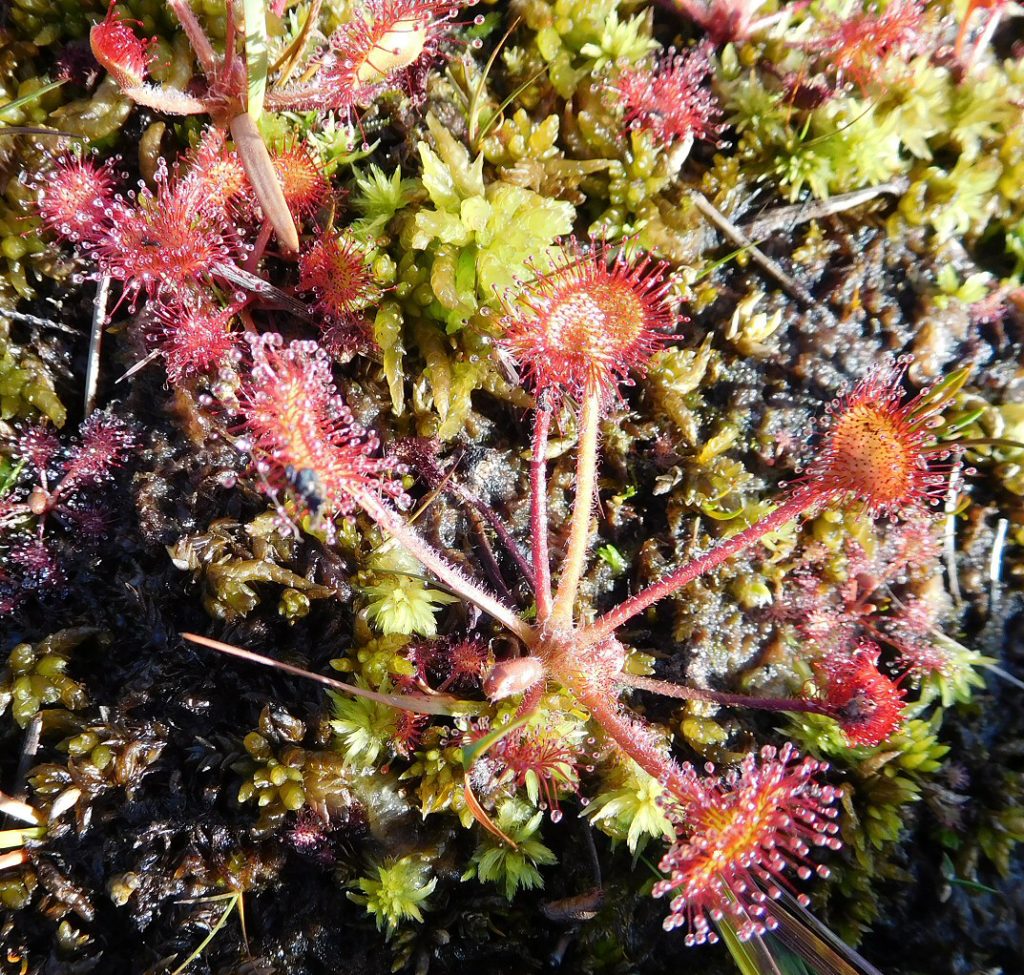
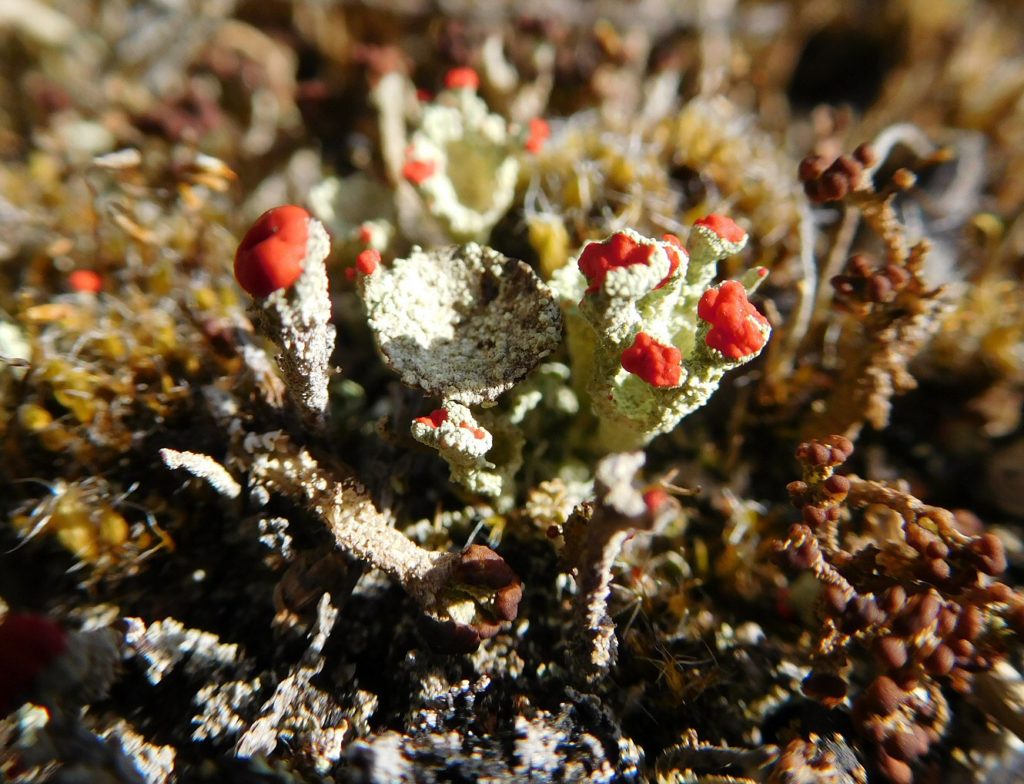
OK, ok, you wanted some dragonflies. There were masses of Black-Tailed Skimmers chasing about in groups at Pudmore Pond. Black Darters, Common Blue Damselflies, and Small Red Damselflies skittered about the smaller ponds. A large Hawker or two dashed past, unidentifiable, probably Southern Hawker. A Keeled Skimmer perched conveniently nearby, daintier than the Black-Tailed.
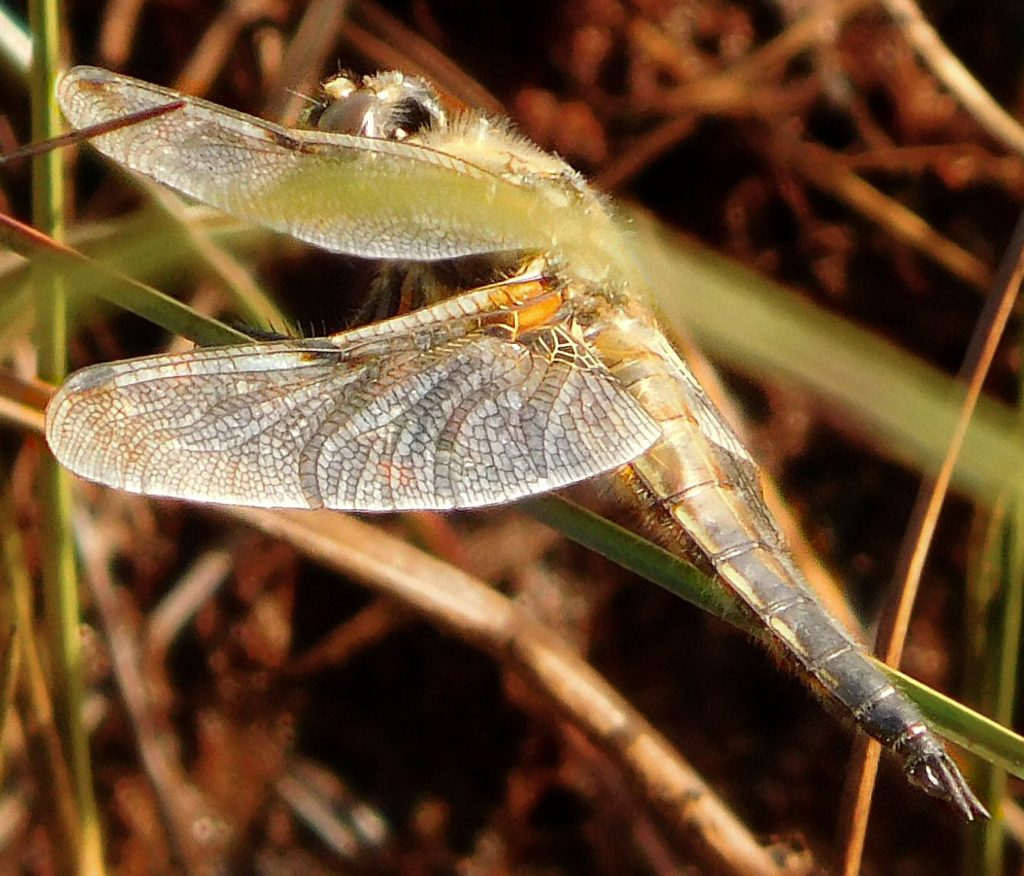
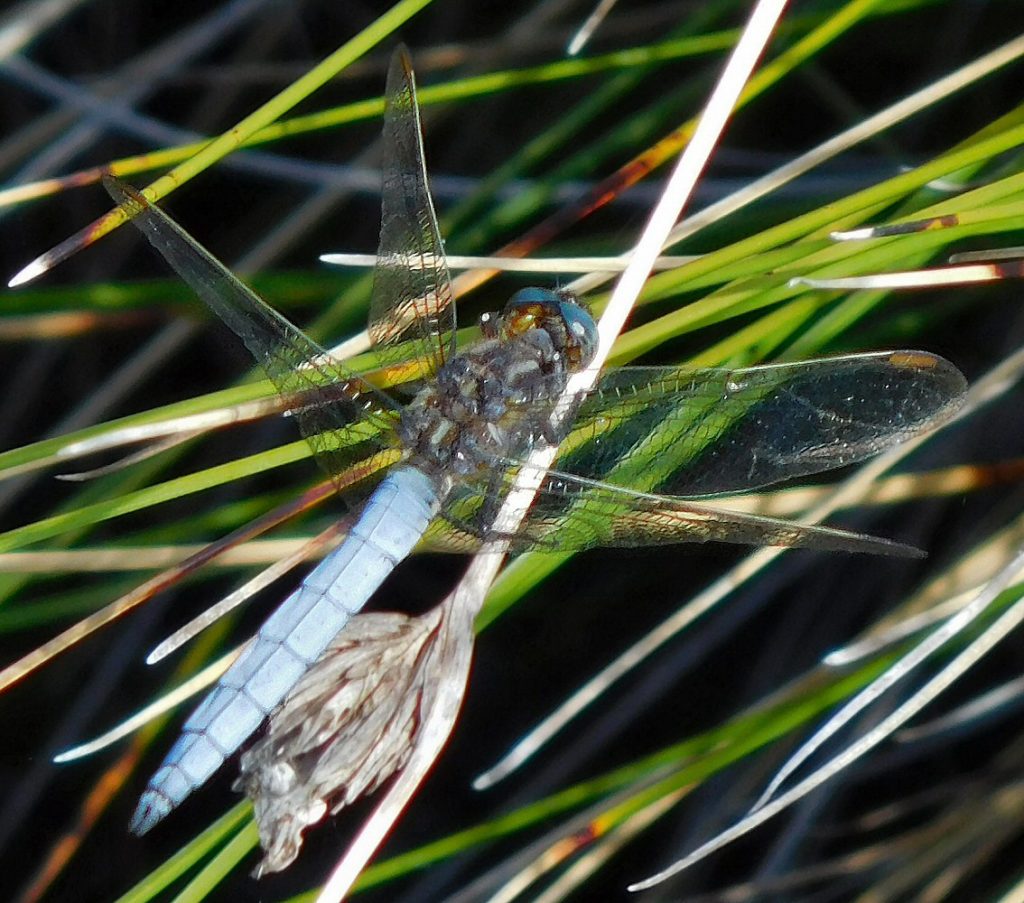
Among the birds, some 50 Swallows were roosting on telegraph wires early in the day. Families of young Stonechats gave grating contact calls, unlike the stone-clicking call of the adults. A Redstart flicked its tail in the bushes. Skylarks rose and sang almost too high to see against the clouds over the heathy hills, Shelley described it perfectly in his ‘To a Skylark’: “a flood of rapture so divine”.
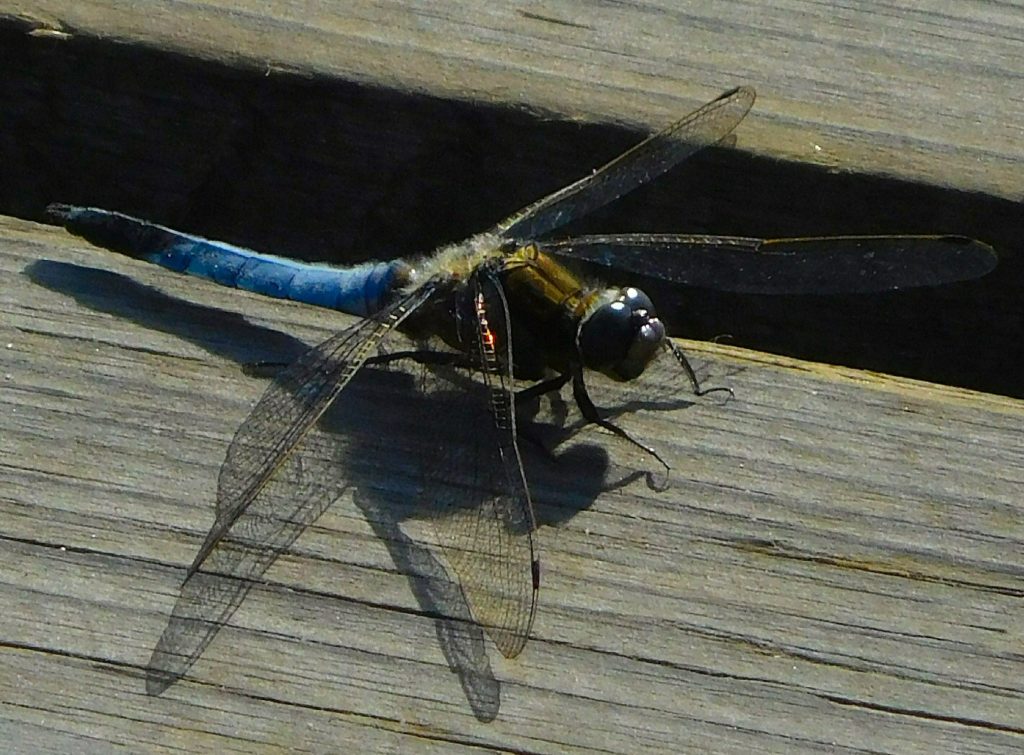
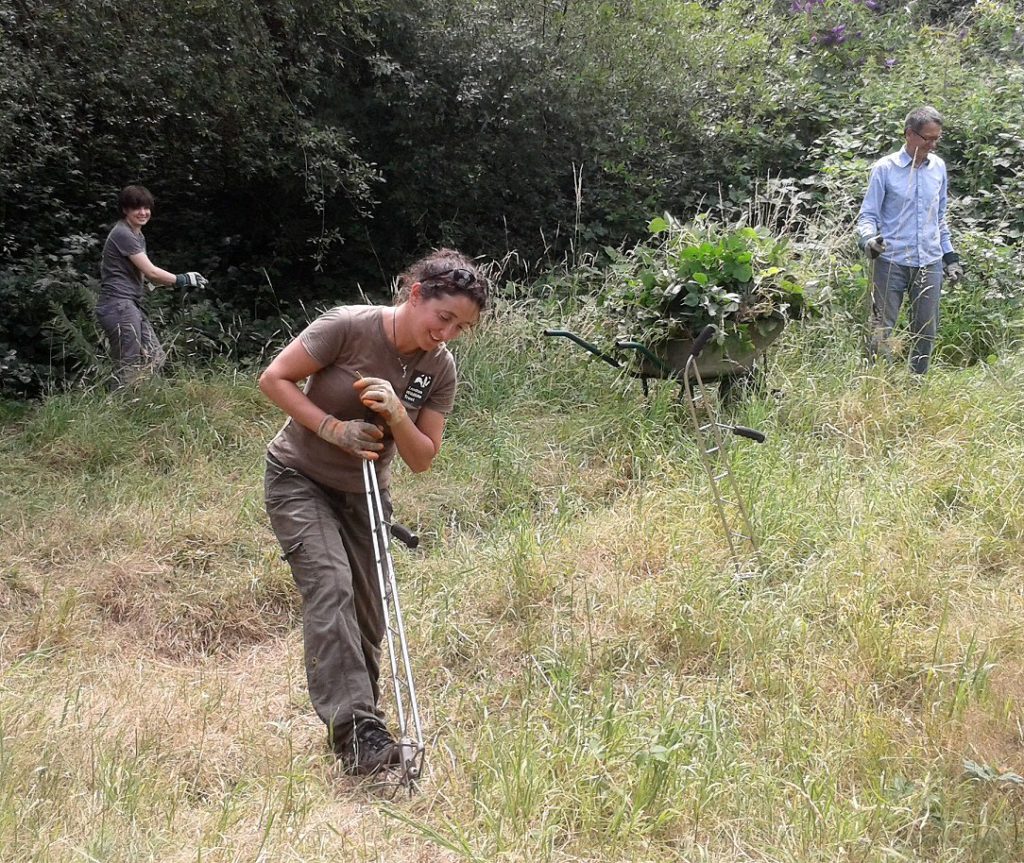
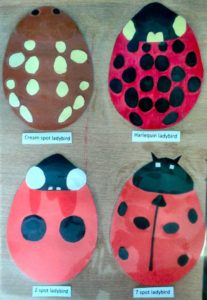
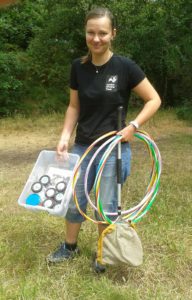
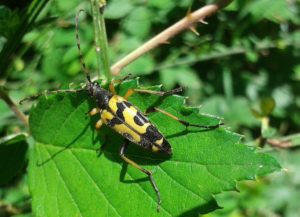
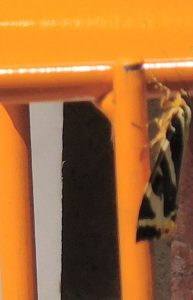
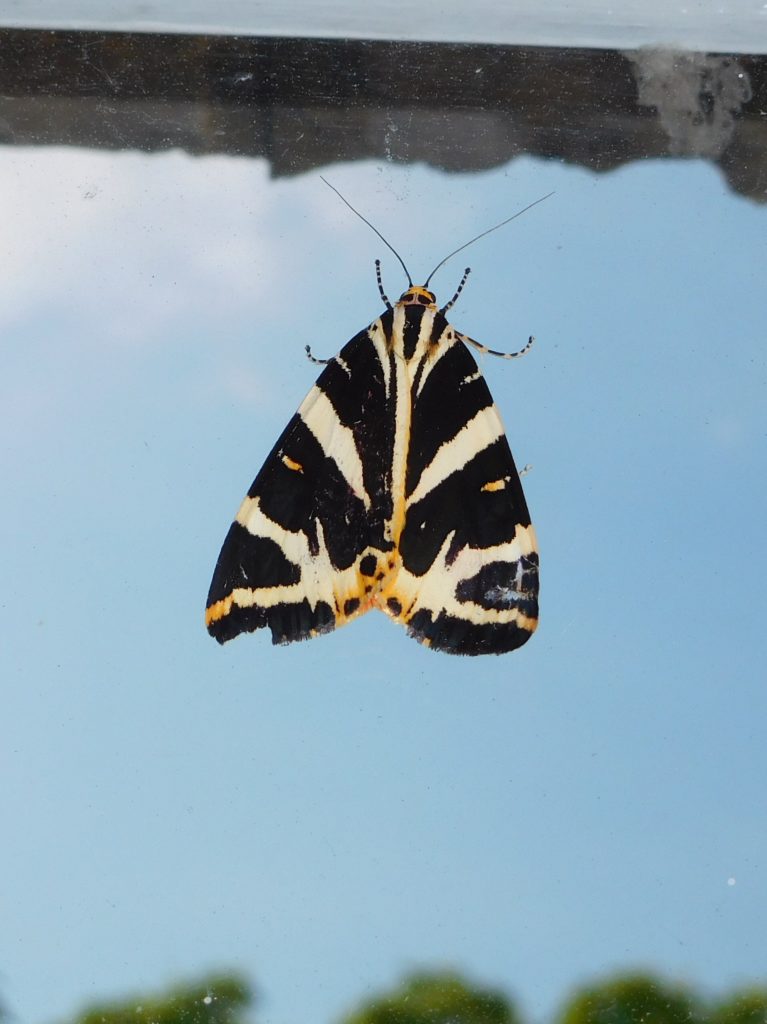
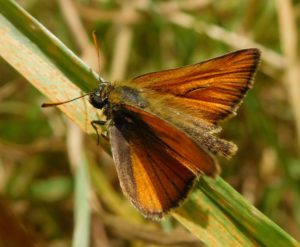
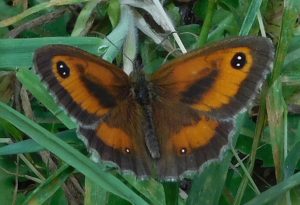
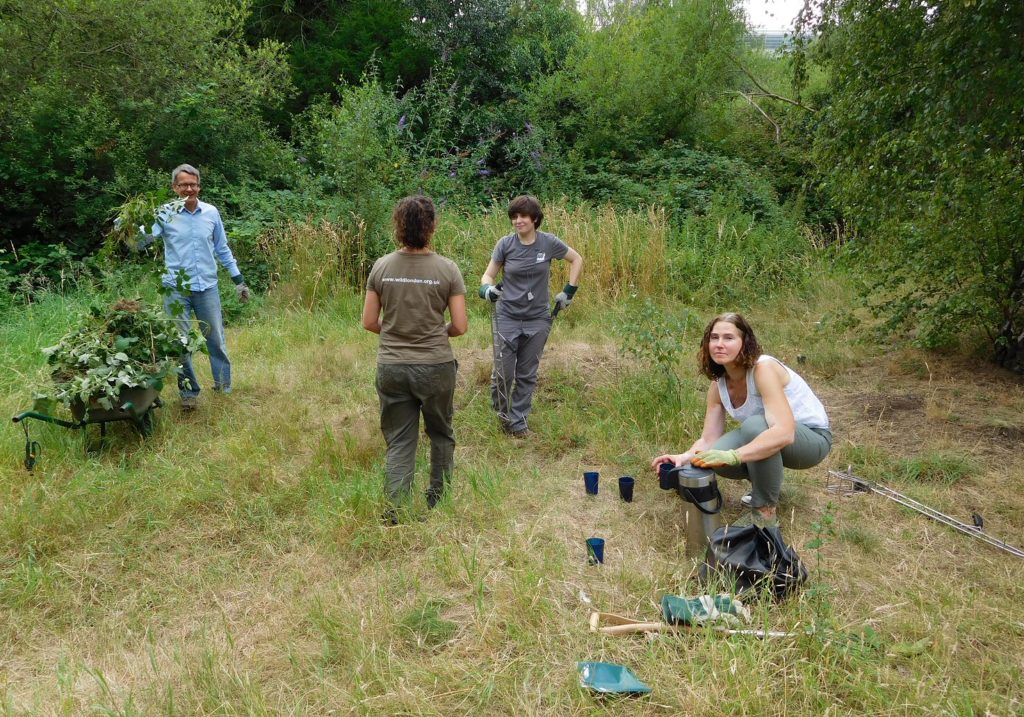
On a sorry note, Netty spotted a small tuft of feathers, still attached to a bit of skin. The scrap was whitish, spotted brown, like a Song Thrush’s breast, torn off by a Sparrowhawk: probably one of the pair that nested here until last year, but must now be nesting somewhere nearby. I reflected that I hadn’t heard the male Song Thrush singing for a fortnight. What a sad bit of fluff to pick up.